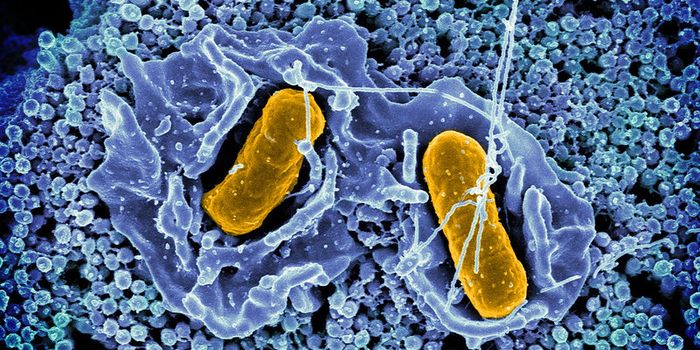Lung Cancer is Different in Non-Smokers
Not everyone that gets lung cancer is a current or former smoker, and researchers have now found that lung cancer is different and distinct in non-smokers, who are also more likely to have different responses to lung cancer treatments. These conclusions come from a study that assessed people in Taiwan with high lung cancer rates in non-smokers. The study, which was reported in Cell, identified genetic damage from carcinogens in the environment. The genetic changes varied according to age and sex, and one change that aggressively promotes cancer was found in young women.
"We carried out the most comprehensive study ever conducted into the biology of lung cancers in an East-Asian population with a high proportion of non-smokers, and found that their disease is molecularly diverse and distinct from what we classically see in smokers," said Dr. Jyoti Choudhary, Team Leader in Functional Proteomics at The Institute of Cancer Research, London. "We found distinct patterns of genetic faults in non-smokers and between women and men, which suggest that a woman who has never smoked, for example, is likely to respond differently to treatment than a male smoker.
"Some early-stage lung tumors had molecular features that are much more like that typically seen in later-stage disease - which could help us more accurately diagnose patients with aggressive disease, and inform treatment strategies."
In this work, the researchers used 103 lung tumor samples from lung cancer patients, including many non-smokers, to analyze the genetics and proteomics of cancer cells. Some early-stage tumors had biological similarities to advanced-stage tumors taken from smokers. Women's tumors often had mutations in a gene that is known to be associated with lung cancer called EGFR, while in men the cancer-associated mutations were found in the genes KRAS and APC, also known to be linked to cancer.
The study can help inform treatment approaches for men and women and smokers and non-smokers. People that have late-stage-like tumors might be monitored differently and given a different therapeutic regimen, for example.
"This new study offers a deep dive into the biology of lung cancer in people who have never smoked. It reveals new ways of telling apart patients with different tumor characteristics that could be exploited with tailored treatment strategies," said Professor Paul Workman, Chief Executive of The Institute of Cancer Research, London.
The researchers also identified a pattern of changes in the APOBEC gene family in a majority of female patients younger than 60, who did not carry EGFR mutations. APOBEC genes are involved in immune function but can also be used by cancerous cells to encourage drug resistance. Immunotherapy tends to be more effective in people who don't carry EGFR mutations. There was also a mutational pattern that was found in older women and was linked to environmental carcinogens like pollution.
"In order to beat cancer, we need to understand all the ways it can develop. This research highlights just how much cancers can vary between people depending on their lifestyle and environment. Understanding the difference between lung cancers in smokers and non-smokers could be vital for providing patients with the most appropriate treatment," said Dr. Emily Armstrong, research information manager at Cancer Research UK.
Sources: AAAS/Eurekalert! via Institute of Cancer Research, Cell









